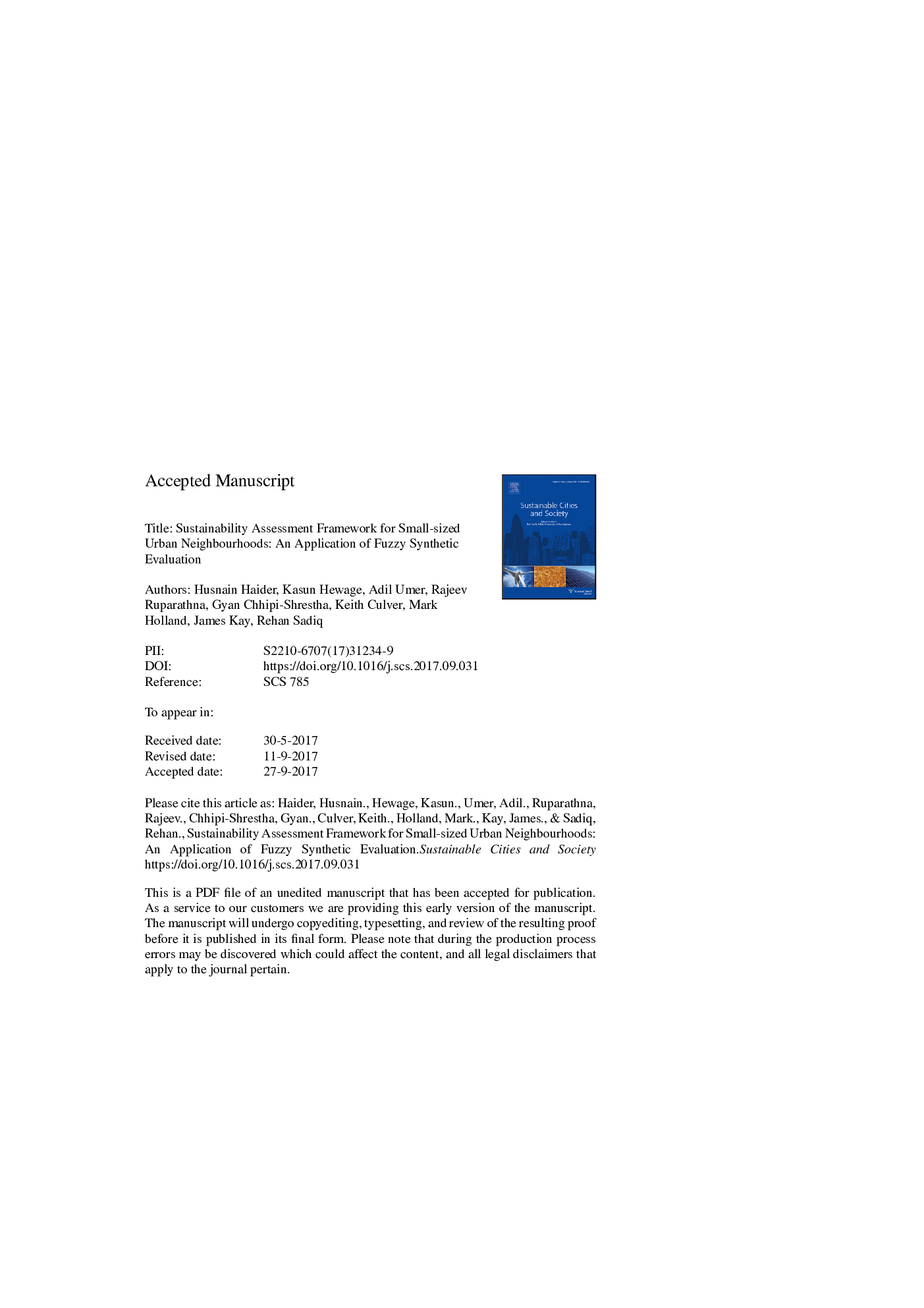| Article ID | Journal | Published Year | Pages | File Type |
|---|---|---|---|---|
| 4927962 | Sustainable Cities and Society | 2018 | 39 Pages |
Abstract
Small-sized urban neighbourhoods are facing challenges to achieve their sustainability objectives due to lack of resources and their limited economies of scale. Establishing benchmarks and evaluating the sustainability indicators (SIs) for such neighbourhoods using a fixed-point scoring approach without addressing the uncertainties associated with data limitations and vagueness in expert opinion may be misleading. In this research, a set of suitable SIs covering all the sustainability aspects of small-sized neighbourhoods is developed from state-of-the-art NSA tools and expert judgment. A hierarchical-based framework is developed to link the selected SIs with the desired objectives and to the key components of a small-sized neighbourhood. The neighbourhood is divided into three key components, i.e. land use, infrastructure, and socioeconomics, to categorize inputs from experts, based on their areas of expertise. A fuzzy synthetic evaluation technique is used to develop an overall sustainability index for each component by aggregating selected SIs. An excel-based NSA tool is implemented on a case study of the District of Peachland, British Columbia, to evaluate framework's pragmatic application. Output of the tool in the form of a 'sustainability radar diagram' and a 'sustainability thermometer' will be useful for decision makers striving to improve the sustainability of small-sized urban neighbourhoods.
Keywords
Related Topics
Physical Sciences and Engineering
Energy
Renewable Energy, Sustainability and the Environment
Authors
Husnain Haider, Kasun Hewage, Adil Umer, Rajeev Ruparathna, Gyan Chhipi-Shrestha, Keith Culver, Mark Holland, James Kay, Rehan Sadiq,
